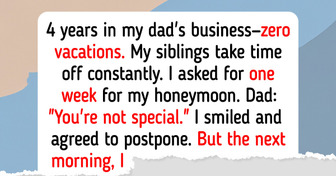A Spanish Artist Captures the Oddities of Life in 20+ Funny Pictures


Ever since he opened up about his story, Michael J. Fox never has shied away from openly addressing his life with Parkinson’s. After retiring from the acting industry, the Back to the Future star has made it his life’s mission to raise awareness about his disease and support others like him. Yet, Michael has always been upfront with his fans, never concealing how hard this entire journey has been and continues to be for him.

Since being open with his audience about his Parkinson’s-related struggles, Michael has recounted every aspect of his journey. Without focusing on the ailment that affects his neurological system, the actor is spreading awareness about what a Parkinson’s disease diagnosis looks like in everyday life.
In 2000, the actor founded the Michael J. Fox Foundation to pursue a cure for Parkinson’s disease. The actor has devoted the last 10 years to his charity, stepping away from the spotlight as the disease progressed because the detrimental effects on his speech and memory made acting increasingly difficult.
Michael has aided many people in finding the help and encouragement they require during their individual battles with the condition.
The actor now lives with a mission: normalize the inability to conduct basic daily tasks to make everyone with Parkinson’s feel less alone. He declared, “Parkinson’s is a gift. It’s not about what I have — it’s about everything you’ve given me: the voice to do this and help people.”
While promoting his new documentary: Still: A Michael J. Fox Movie, over the last few weeks, the celebrity has once more spoken out about his health situation. Michael honestly addressed his Parkinson’s disease, saying, “Parkinson’s sucks, but it’s a great life.”
Yet, he has never shied away from how hard it may be to accept living with this diagnosis, but he has always fought to never let the illness have total control over him. He said, “Pity is a benign form of abuse. I can feel sorry for myself, but I don’t have time for that. There is stuff to be learned from this, so let’s do that and move on.”

Michael has faced a difficult situation and has come to terms with a diagnosis that has impacted his ability to continue his career. In spite of these limitations, it is admirable that he kept working for as long as he could. Recounting that time of his life, he said, “I have no regrets. You do what you have to do, but you do not want to kill yourself. And that’s when I stopped.”
It’s tough to let go of something that has long been a central part of one’s identity, but Michael has accepted and embraced every aspect of his Parkinson’s. He explained how he created a movement around his disease and the exposure that resulted from it, saying, “I didn’t have a choice,” adding, “This is it. I have to give everything I have, and it’s not lip service. I show up and do the best I can.”

After going public with his Parkinson’s, Michael never imagined the positive response he would receive from all of his fans. He confessed, “It was a great surprise to me that people responded the way they responded.” And he added, “They responded with interest, in the desire to find an answer to the disease.”
Now, Michael continues to share his story and provide insights into his life, even years after being transparent about his experience. He truly values the support of his fans and wants to show them how much they mean to him. Sharing his tale through a documentary is a great way to do this, as it allows Fox to reach a wider audience and give people a deeper understanding of what he has been through.
He said, “My fans have basically given me my life. I wanted to give these people who have done so much for me my time and gratitude. It was great for me to hear from all of you.”
Tracy has been by his side and provided him with the best support. Fox speaks lovingly about his wife and acknowledges her essential role in their family. “Any good in our family, anything good that we do, comes from her,” he said.
The fact that they have maintained a successful marriage for 34 years is impressive, and it’s great to see that they attribute their success to factors like listening to each other and giving each other space. “I think we really listen to each other. We are there for each other when we need each other,” Pollan said. “And then we also give each other space when that’s needed. Just feeling off of what’s needed at the moment and trying to be there.”











